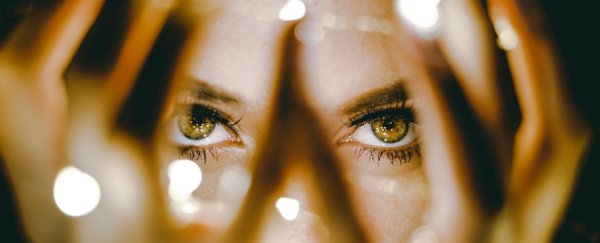Psychedelic therapy is going through something of a revival right now, and we may now know how one such hallucinogenic drug is seemingly able to alleviate symptoms of depression.
Psilocybin, the active compound in magic mushrooms, has long been known to deliver therapeutic effects to people with depression, and researchers think this is because the drug helps to revive emotional responsiveness in the brain.
What's so remarkable is this kind of mechanism is actually the opposite effect of a major class of antidepressants used to treat the condition, called selective serotonin reuptake inhibitors (SSRIs).
"Psilocybin-assisted therapy might mitigate depression by increasing emotional connection," neuroscientist Leor Roseman from Imperial College London explained to PsyPost.
"[T]his is unlike SSRI antidepressants which are criticised for creating in many people a general emotional blunting."
The new study examined 20 patients diagnosed with moderate-to-severe treatment-resistant depression, to investigate what kinds of effects psilocybin would have on their brain activity and depressive symptoms.
A previous study by some of the same researchers had shown that the drug seems to 'reset' brain circuits in depressed people, with patient-reported benefits lasting up to five weeks after treatment.
This time around, the team wanted to examine what impact psilocybin might have on the amygdala – the part of our brain that helps process emotional reactions, including fear – in addition to its effects on participants' depression.
Before taking the drug, the participants underwent fMRI brain scans, then, in two separate sessions one week apart, they took doses of psilocybin, before again being scanned via fMRI the morning after receiving the second dose.
During the fMRI scans, the group were shown images of faces with either fearful, happy, or neutral expressions, and the researchers wanted to investigate what effect these faces had on the participants' amygdala after taking psilocybin.
After the experiment, the majority of patients reported that the psilocybin had eased their depressive symptoms, with almost half the group still seeing benefits from the treatment five weeks later – in line with the kinds of benefits other depression studies using the drug have shown.
More intriguingly, the fMRI scans showed the drug heightened activity in the right amygdala, with increased responses to both fearful and happy faces – and the increases to fearful faces were predictive of clinical improvements in depressive symptoms one week after the experiment.
What's striking is the alleviation of depression occurs from emotional receptivity being enhanced – the opposite of SSRI antidepressants.
"It has been proposed that decreased amygdala responsiveness to negative emotional stimuli under SSRIs is a key component of their therapeutic action," the researchers explain, "but the present study's findings suggest that this model does not extend to the therapeutic action of psilocybin for [treatment-resistant depression]."
The researchers don't know for sure why that is, but after the experiment the patients reported "a greater willingness to accept all emotions post-treatment (including negative ones)" (original emphasis), whereas they felt their previous depression treatments worked to "reinforce emotional avoidance and disconnection."
"I felt so much lighter, like something had been released, it was an emotional purging, the weight and anxiety and depression had been lifted," one participant said.
"I have felt a sense of acceptance; more acceptance of agony, boredom, loneliness," commented another.
"[A] willingness to try to accept the negative times – but also an appreciation of the wonderful times."
The team acknowledges their study has a number of limitations, including a small sample size, and a lack of controls – including one for SSRIs.
But they say their next trial will try to address those shortcomings, as well as looking further into how this mysterious compound alleviates depression – while seemingly forcing people to confront their emotions, whether good or bad.
"I believe that psychedelics hold a potential to cure deep psychological wounds," Roseman told PsyPost.
"[A]nd I believe that by investigating their neuropsychopharmacological mechanism, we can learn to understand this potential."
The findings are reported in Neuropharmacology.
